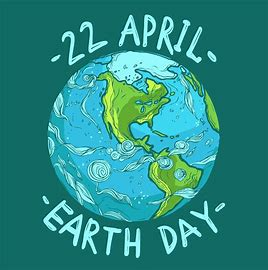COVID-19 Vaccine: An Ethical Dilemma
On Monday, December 14, 2020, critical care nurse Sandra Lindsay of Long Island Jewish Medical Center became the first American to receive the COVID-19 vaccine after nine, long and arduous months battling the pandemic on the front-lines. Lindsay smiled under her mask after receiving the vaccine and stated, “I hope this marks the beginning of the end of a very painful time in our history.” This sentiment was in the mind of many Americans as our country took a monumental leap and began distributing the COVID-19 vaccine to hospitals and nursing homes across the country, as an effort to put an end to the pandemic. It is now estimated that over 2.8 million people in the United States have received a dose of the vaccine, according to The New York Times.
The COVID-19 vaccine is unlike any other vaccine in the United States’ history. Developed in record time by biotechnology companies, Pfizer Inc. and Moderna, the vaccines are essentially identical. Both vaccines forgo the traditional method of utilizing a weakened version of the virus and instead contain genetic material from the COVID-19 virus (mRNA) that teaches our immune system to remember and destroy the virus in the future. Though the vaccine sounds extremely promising to stopping the spread of COVID-19, some questions have been raised regarding the efficacy and safety of the vaccine, considering the hasty process which it underwent to secure FDA approval. Understanding the ethics behind the COVID-19 vaccine, and determining if it benefits society as a whole, is imperative in the midst of a rapidly changing pandemic. Some fear as if this vaccine is almost too good to be true.
Bioethics is the evaluation of medical practice and policy via moral discernment. More specifically, bioethics studies social, legal, and philosophical issues that have arisen in medicine. There are four pillars that comprise bioethics: beneficence, non-maleficence, justice, and autonomy. Beneficence refers to the concept that clinicians should work for the betterment of their patients. A related but not synonymous concept is that of non-maleficence, in which clinicians should do no harm. Doctors are obliged by the Hippocratic Oath to provide care to patients that are both beneficial to them and should not cause harm or degrade their quality of life. Just as the principles of beneficence and non-maleficence complement each other, the ethical concepts of justice and autonomy go hand in hand. In the practice of medicine, justice refers to equality and fairness as to who is given treatment, within reason, whereas autonomy refers to the patient’s right to continue or forgo medical treatment without being pressured by external forces. All four of these concepts favor the rights of patients to make their own decisions vis a vis medical care. On occasion, one or more of these four principles may get overlooked, especially at the intersection of medicine and the needs of society.
The unprecedented speed of the COVID-19 vaccine trials and approval process has raised a multitude of concerns. The only other vaccine of a comparable timeline to the COVID-19 vaccine is the mumps vaccine, but that took four years to develop, while the COVID-19 vaccine took less than a year to develop. This feat has definitely changed the future of vaccine science, as it is prospective that other vaccines may be developed on a similar timeline. That being said, was the speediness of the development of the COVID-19 vaccine more harmful than beneficial? The concept of beneficence comes into question because, supposedly, vaccine makers were pressured by the media and by the toll of COVID-19 on the public. Vaccine development is divided into several stages: exploratory, pre-clinical, clinical, review and approval, manufacturing, and quality control. Within the clinical development stage, there are three phases that involve the participation of humans, according to the Centers for Disease Control. Normally, this whole process would take around 10-15 years. Due to the short time frame and the demands of the pandemic, small sample sizes were utilized and both Pfizer and Moderna rapidly progressed through the various phases required for vaccine approval. Therefore, there could be a greater chance for error regarding the efficacy of the vaccine. A grey area still remains in populations of pregnant women, children, and individuals with allergies, as they were not included in the initial clinical trials.
The uncertainty behind the efficacy and safety of the COVID-19 vaccine has led key political and medical professionals to become hesitant about receiving it. This is especially concerning considering that these professionals have firsthand seen the devastation that the virus has caused to the American population. It is important for biotechnology companies to abide by the concept of autonomy; to present the public with accurate and truthful information regarding current data, in order for individuals to make an informed decision about receiving the vaccine. Alongside this, vaccine recipients should have access to all of the risks and benefits associated with the vaccine, through proper informed consent. Informed consent, which goes hand-in-hand with autonomy and beneficence, is essential when striving towards complete vaccine acceptance across the American population.
Despite the ethical concerns of the COVID-19 vaccine, the vaccine is propitious as it leads the path to our country’s recovery from the virus which has taken the lives of over 348,000 Americans. Both the Pfizer and the Moderna two-dose vaccines have been found to be about 95% effective, which is considerable, with no major risk factors.. Though there still is a long road ahead of us, this gives hope for a covid free future.










